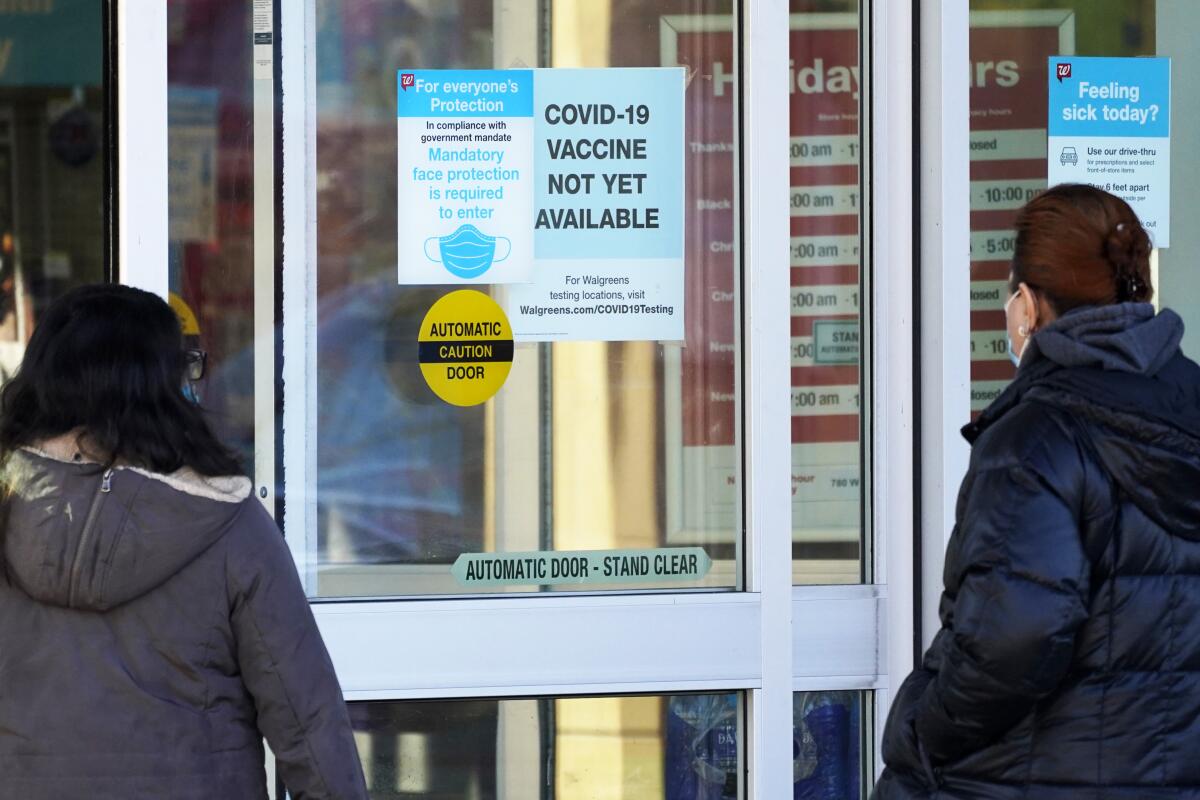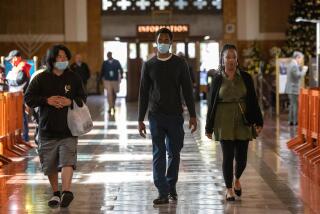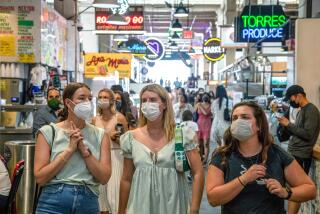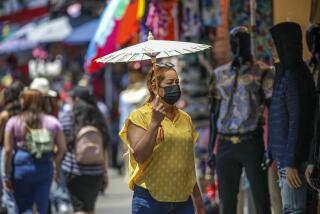COVID compliance is costly. The feds need to step up

- Share via
In a ruling Tuesday that reversed Los Angeles County’s outdoor dining ban, Superior Court Judge James Chalfant articulated what many Californians are feeling about state and local pandemic restrictions: that they seem arbitrary and unconcerned with whether the potential benefit of shutting down a few relatively safe activities for weeks is worth the economic damage and personal toll that will be incurred.
This discussion is an important one to have — next year, with some distance from the current crisis. For now, it’s irrelevant. The fact, like it or not, is that those restrictions are here for the next few weeks in Southern California and the San Joaquin Valley under the state’s emergency pandemic measures, and other regions may be added soon as intensive care units fill up.
Even Chalfant’s order doesn’t allow L.A. County restaurants to reopen patios for in-person service, as the state restrictions are still in place. Complaining about how the rules seem unreasonably harsh won’t get us out from under them any faster. (Or rather, usually won’t; the state reversed the closure of playgrounds Wednesday after receiving complaints that the measure would hit low-income families especially hard.) Defying the stay-at-home orders only helps the virus do its insidious work and guarantees extended restrictions.
The only option, really, is to hunker down for the next three weeks as authorities urge. It’s not forever. COVID-19 vaccines are expected to start arriving in California next week. But meanwhile, the rates of infection and death are the worst that we’ve seen since the pandemic began. In the last month, the number of people dying from COVID-19 in Los Angeles County increased more than 250%. For the last week, an average of 135 people died in California every day.
Tens of thousands more are in California hospitals, which are filling up fast with COVID-19 patients, likely the result of infections spread during Thanksgiving celebrations. Things are so dire that ICUs in three counties, including Fresno, reached zero capacity this week. Other counties are nearing that point too. If hospitals run out of ICU beds, this would endanger the survival not just of COVID-19 patients, but of anyone who needs emergency care for countless other life-threatening illnesses and injuries that happen regularly.
But the burden of compliance can’t fall solely on workers and businesses that are limiting their activities for the common good. Congress needs to step up and pass another relief bill immediately to get help to idled workers and struggling small businesses, even if it means lawmakers from both parties having to accept provisions they don’t like, such as aid to state and local governments and some limits on COVID-19 liability.
If workers could afford to stay home for the next three weeks and small-business owners could close their doors without imperiling their future, it would make compliance a heck of a lot more bearable to a public that’s weary of the months of unending hardship.
More to Read
A cure for the common opinion
Get thought-provoking perspectives with our weekly newsletter.
You may occasionally receive promotional content from the Los Angeles Times.









